Stress is getting to most of us

Do I need to describe stress to you? I doubt it. In my consultations, I routinely ask my clients to rate their stress levels out of 10 and nearly everyone answers above 5. Here’s how adaptogens can help.
Familiar effects of ongoing stress are insomnia, anxiety, depression and lack of energy. Less well-known are the proven links to a weakened immune system, digestive issues, diabetes and reproductive problems. In Ayurveda, stress is seen to reduce ojas (the substance in us that increases vitality, strength, immunity and prevents ageing).
In the Vedic philosophical tradition, the premise is that ‘there is no stress in the universe’, which seems patently contradictory to our daily experience! The basis of that statement is that, in truth, beneath all the seemingly stressful daily grind, there exists an underlying peace that is always accessible and part of our fundamental nature as a human being. Dealing with stress is, therefore, mainly down to mindset; reminding ourselves that the feeling of stress is our chosen response to situations and that we can choose another. We can choose to stay connected to that inner peace or go with the stress that arises from leaving it. Simple, yes?
It isn’t always that easy! Thankfully there are many tools within Ayurveda to help. Meditation, releasing stuck emotions and adapting diet and lifestyle are some of those tools. Another powerful means we have at our disposal is our vast pharmacy of plants with their amazing healing qualities. These help the body and mind become more resilient to the daily stressors as we perceive them. The best amongst these are adaptogens.
Adaptogens are at hand to help
The talk of the town at the moment are plants called adaptogens, herbs which help to support the body against stress. They are not new to Ayurveda. They come under the family of rasayana herbs which are rejuvenative tonics used to slow aging, boost immunity and vitality and many amongst them have special properties for the mind; increasing intelligence, clarity, memory and promoting calm.
Adaptogens help our body adapt to the stressors around us and promote normal physiological functioning. Technically, they enhance the “state of non-specific resistance” in stress. Research into these adaptogenic herbs was initiated in the 50’s to find ways to help soldiers deal with the stress of war and it a sad testament to our current daily lives that so many of us are turning to them to get through daily life – how did life become such a battle?
These wonderful herbs protect the immune, hormonal, neurological, digestive and circulatory systems along with fortifying the mind against anxiety and depression.
My five adaptogen favourites to help with stress
These herbs make regular daily appearances in my clinic in South-West London.
Ashwagandha (withania somnifera)
All the rage now but this adaptogen has millennia of proven use.
Best for: energy and better sleep when you’re “tired and wired”
Use for: improving energy, getting better sleep, regulating immunity, increasing sex drive, strengthening muscles, calming anxiety
In my clinic: I love this for boosting energy and strength and helping those with autoimmune diseases (once there is no ama present). If someone has hypothyroid and isn’t on thyroid medication, I use it to help them too.
Doshas: Decreases vata and kapha, increases pitta (explanation of doshas)
Don’t use if: you have high pitta, ama, congestion, are pregnant or taking thyroid medication. If you’re a diabetic, it can lower your blood-sugar levels so monitor them closely.
Did you know? It was when I mentioned that Ashwagandha can be used to enhance muscles that my husband suddenly became interested in me making him up a herbal prescription!
Tulsi (ocimum sanctum)
An adaptogen which makes the mind ‘holy’ and boosts the lungs and digestion too.
Best for: mental clarity
Use for: uplifting the mind, calming, enhancing memory, improving immunity, strengthening the respiratory system, resolving stress-related digestive problems, lowering blood sugar
In my clinic: I often use for those clients who keep catching colds and those whose response to stress is despondency
Doshas: Decreases vata and kapha, increases pitta (explanation of doshas)
Don’t use if: you have thyroid disease, have high pitta, are pregnant or breastfeeding. Avoid if you are taking thyroid medications or anticoagulants and monitor blood sugar if you are diabetic.
Did you know? Tulsi is known as holy basil due to its properties and is grown in courtyards of temples all over the world
Brahmi (bacopa monnieri)
This amazing brain tonic adaptogen makes you smarter.
Best for: enhancing cognition
Use for: reducing anxiety, enhancing brain function and memory, aiding meditation, promoting sleep
In my clinic: I use of lot of this for clients who need help with memory and those who can’t sleep, especially if it’s because their mind is racing
Doshas: Tridoshic (reduces all doshas) ( explanation of doshas )
Don’t use if: you have high blood pressure or arrhythmias. Use only under the guidance of a health care professional if you are taking calcium channel blockers, anticonvulsants, antidepressants, sedatives or thyroid medications.
Did you know? This is not the same as gotu kola (centella asiatica) although they have similar actions – there are many people who get them confused!
Amla/Amalaki (emblica officinalis)
The sour fruit adaptogen that has 20 times the vitamin C of oranges.
Best for: improving skin & hair when stress is at the door
Use for: internal healing, boosting immunity, cooling burning sensations, calming irritability and anger, lessening allergies, lowering blood sugar, improving eye health
In my clinic: This is my go-to for gastro-inflammation and irritation and I also use it a lot to boost immunity
Doshas: Tridoshic (reduces all doshas, especially pitta) ( explanation of doshas )
Don’t use if: you have active diarrhoea. Take under guidance if you take diabetic medications.
Did you know? The vitamin C in amla is protected during heating and drying by other components of the fruit.
Shatavari (asparagus racemosus)
God’s adaptogenic gift to stressed women.
Best for: balancing hormones
Use for: balancing hormones, soothing inflamed mucous membranes, calming anxiety, strengthening body and mind
In my clinic: I see a lot of menopausal women who LOVE this herb. It’s also a miracle worker with inflammatory bowel diseases, of which I’m seeing more and more.
Doshas: Decreases vata and pitta, increases kapha ( explanation of doshas )
Don’t use if: you have oestrogen-dependent cancers or fibrocystic breasts, acute lung congestion and high kapha or ama.
Did you know? Shatavari literally means having a hundred roots and implies that on taking this you could have 100 husbands!
How to take these wonder herbs?
Quality matters! The effects will only be as good as the quality of the herbs so get them from the best source you can. I use Pukka sourced whole herb powders which are organic, sustainably farmed and pass through stringent quality controls.
With some of these adaptogens, you’d be best first clearing out any ama (undigested, unmetabolised, unexcreted muck!). Read about ama here to see if you have any and to get tips on how to clear it.
You can get a personalised prescription from me with which adaptogens, or other herbs, would be best suited to you (click here for how).
If you’re feeling confident, you can try using the herbs in some of these other ways.
- Ashwagandha and shatavari are both best boiled with milk or a milk alternative (1 tsp per cup) to which you can add turmeric, ginger or cinnamon to taste. For shatavari milk in particular, it is great with an added teaspoon of ghee.
- Tulsi is delicious as a tea – there are various brands on the market, I particularly like the Pukka one.
- Amla is the main ingredient of chyavanaprash, a delicious medicinal jam and can also be eaten as a pickle. You can also buy the dried whole amla fruits and chew on them (I find these are brilliant if you suffer from heart burn).
- Brahmi can be simply taken as a powder with warm water or it is in some teas, for example this Organic India one mixed with tulsi (double whammy!).
Enjoy your new-found vitality.
Until next time, take care of yourselves.
Kate
Author: Kate Siraj, Ayurvedic Practitioner, BSc Ayurveda,
MChem (Oxon), MAPA.
© The Ayurveda Practice

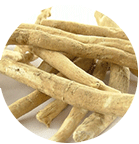

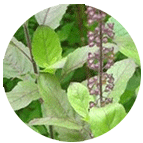
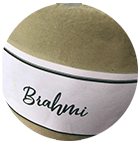
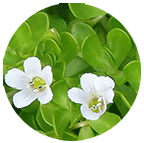


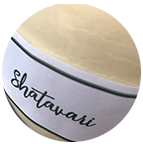
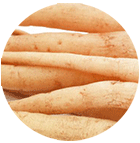
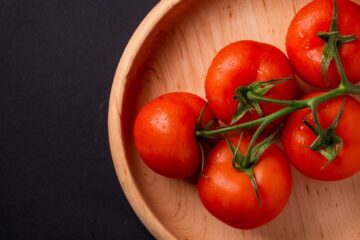

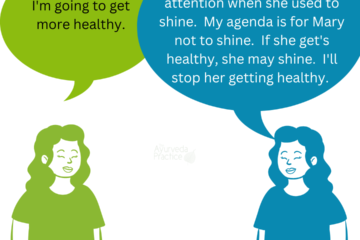
4 Comments
Chitrakoota · August 8, 2019 at 13:25
I recommend highly for my friends. Your tips for each items like Brahmi helps a lot. Thanks for sharing.
Josef · June 17, 2020 at 19:37
Hi Kate,
many thanks for an excellent article! About two months ago i started to take Ashwaganda. According your questionary I had high amount of vata dosha, together with higher level of stress, sleeping problems I though this is the right herb for me. But..my condition after even few capsules got worse – headache, vertigo, internal head pressure.. I had to stop taking ashwaganda. I read many many article – no such problems were descibed. Only from this article I knew that ama could cause my problems with ashwaganda, even when all other condition for its use were present.
Josef
Isha · July 16, 2022 at 18:45
Plants have indeed amazing healing qualities!
Boost immunity, reduce stress, stay strong - The Ayurveda Practice · March 13, 2020 at 14:24
[…] some adaptogens to help you be more relient to stress. Be careful with any drug or disease contraindications. Get […]